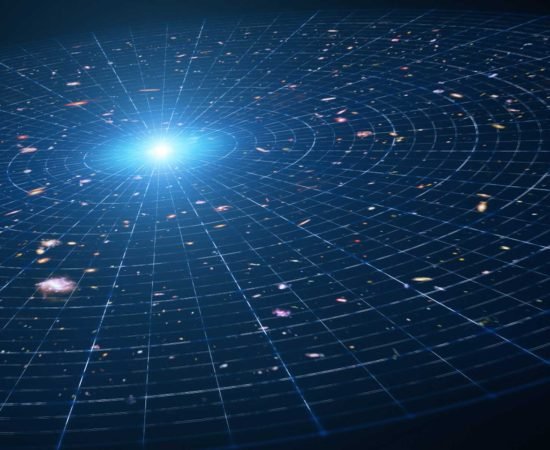Physicists have named the enigmatic force behind the universe’s rapid growth as dark energy. One piece of proof implies that it is a power or a type of energy, and it may be found within black holes.
The mysterious phenomenon known as dark energy accelerates the universe’s growth by acting in resistance to gravity. Even though dark energy makes up as much as three-fourths of the universe’s mass-energy, scientists have been unable to determine what it really is. Other than having the word “dark,” which simply indicates that scientists don’t really know what these entities are, dark energy and dark matter have no actual connections to one another.
In 2023, researchers claimed to have found proof that a form of energy held within black holes could account for dark energy. If the discovery is accurate, it would imply that dark energy cannot be explained by our existing theories of the universe, which only include Einstein’s idea of gravity. However, before it can be generally adopted by physicists as an explanation for dark energy, follow-up results would need to corroborate the findings.
Who discovered dark energy?
The American scientist Edwin Hubble observed in 1929 that a star moves away from us more quickly the further it is from the Earth, according to the Hubble Space Telescope website. This observation led to the discovery that the universe is expanding. This doesn’t imply that our world is at the center of the cosmos; rather, it indicates that everything in space is constantly veering away from each other.
Scientists made a further shocking finding nearly 60 years after Hubble’s discovery. By observing the radiation from distant stars, scientists have long attempted to calculate cosmic distances with great accuracy. Two separate teams examined far-off supernovas in the late 1990s and discovered that the light from the star blasts is fainter than anticipated. This suggests that the expansion of the cosmos is not only continuing but increasing.
Since then, that discovery has left scientists perplexed, and its discoverers were awarded the 2011 Nobel Prize in Physics.
What does dark energy do?
Though dark energy is still poorly understood, scientists have used what they do know to build universe-explaining theories that cover everything from the Big Bang to the current large-scale structure of galaxies. According to some of these theories, everything will be destroyed by dark energy billions of years from now.
According to the main theories, dark energy is a form of stored energy that is part of the structure of space-time. The rule of gravity doesn’t need to be changed for this easy addition to the cosmological model, according to Baojiu Li, a mathematical scientist at Durham University in the United Kingdom, who recently spoke with Live Science. It’s a good notion to have a backup plan in case something goes wrong.
Measurements taken from old and inactive black holes in February 2023 revealed that these cosmic behemoths are expanding more quickly than anticipated. The results imply that black holes, within the context of Einstein’s theory of relativity, contain a form of vacuum energy intrinsic in the fabric of space-time that can explain the universe’s growth. No novel science would be required to explain dark energy if the discovery holds up. In two articles that were published in The Astrophysical Journal and The Astrophysical Journal Letters, they reported their results.
A different theory claims that dark energy is a fifth basic component, joining the known four. (gravity, electromagnetism, and the strong and weak nuclear forces). This hypothesis, however, does not clarify why people are not aware of this additional energy in their daily activities. Therefore, thinkers have also developed imaginative models that assert this enigmatic power is concealed in some manner.
There is presently a heated discussion within the physics community about the determined value of dark energy. Using the cosmic microwave background, a faint echo of the Big Bang, some experts have estimated the strength of dark energy.
However, other scientists who gauge the intensity of dark energy using the light from far-off cosmic objects have come up with a different result, and nobody has been able to explain the difference as of yet. Though proponents of this theory have not yet persuaded the majority of their peers, some experts have proposed that the strength of dark energy changes over time.
Additional resources:
- Read more about dark energy from Swinburne University in Australia.
- Here’s the definition of dark energy and dark matter, from NASA Science.
- Watch “Big Mysteries: Dark Energy,” from Fermilab.




